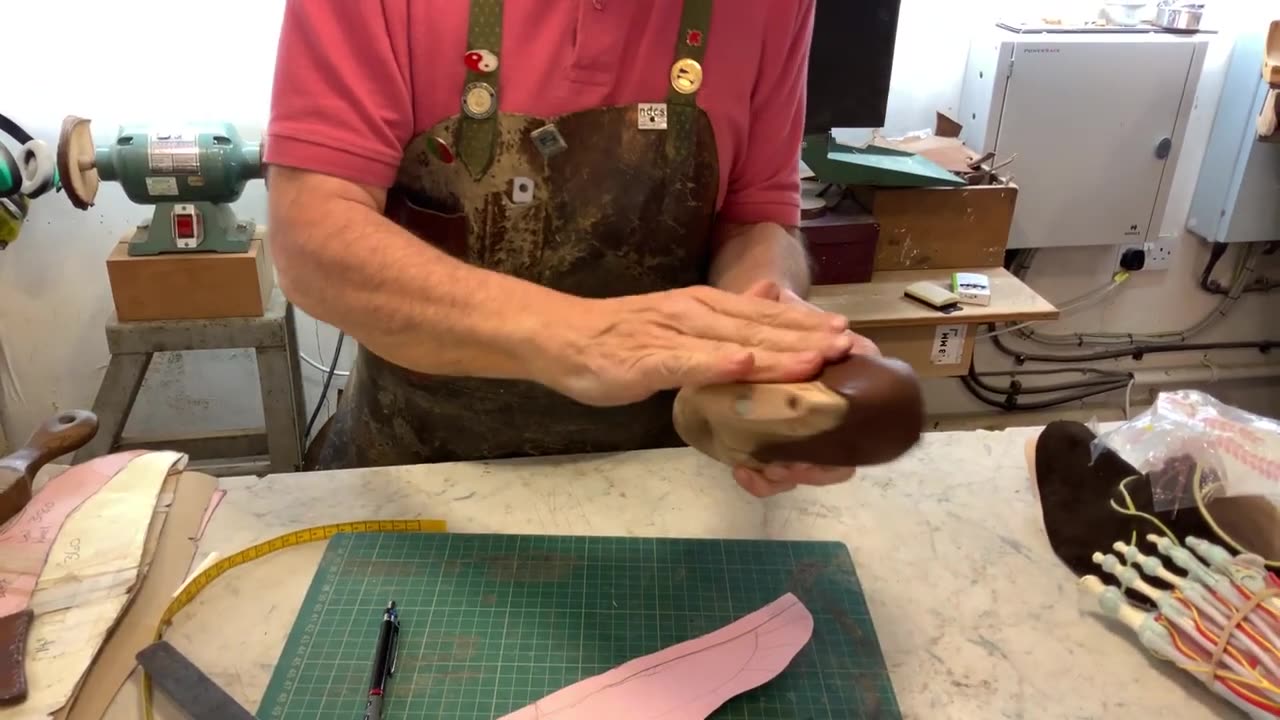Premium Only Content

25 How to make Stiffener Patterns - Part 3 of 3
Creating stiffener patterns involves a process that is often specific to the material you are using, the type of stiffener required, and the intended application. Below is a general guide that you can adapt based on your specific needs and materials:
### Materials Needed:
- **Paper or Cardboard:** For creating the pattern.
- **Measuring Tools:** Ruler, measuring tape, or any other suitable measuring instrument.
- **Pen or Pencil:** For marking and drawing.
### Steps:
1. **Understand the Purpose:**
- Determine the purpose of the stiffener (e.g., for a garment, accessory, or structural application).
2. **Material Selection:**
- Identify the material for the stiffener (e.g., interfacing, plastic, metal, etc.).
3. **Measurements:**
- Take precise measurements of the area where the stiffener will be applied.
- Consider the desired shape and size of the stiffener.
4. **Drafting the Pattern:**
- Using your measurements, sketch the pattern on paper or cardboard.
- Ensure accuracy and symmetry in your design.
5. **Add Seam Allowance:**
- If applicable, add seam allowances to your pattern to accommodate stitching or joining with other pieces.
6. **Labeling:**
- Clearly label your pattern with any necessary information, such as the type of stiffener, size, and any directional instructions.
7. **Cutting:**
- Carefully cut out the pattern along the outlined edges.
8. **Testing:**
- If possible, create a prototype using inexpensive materials to test the fit and effectiveness of your stiffener.
9. **Refinement:**
- Make any necessary adjustments to the pattern based on the testing results.
10. **Finalization:**
- Once satisfied with the prototype, transfer the final pattern to your chosen stiffening material.
- Cut out the stiffener following the pattern.
11. **Application:**
- Apply the stiffener according to your project's instructions, whether it involves sewing, adhesive, or other attachment methods.
12. **Documentation:**
- Document your stiffener pattern for future reference. Include details such as materials used, dimensions, and any specific application instructions.
Always consider the specific requirements of your project and materials when creating stiffener patterns. This guide provides a general outline, but the details may vary depending on the context of your application.
-
 LIVE
LIVE
FreshandFit
6 hours agoAfter Hours w/ Girls
22,055 watching -
 5:57:27
5:57:27
SpartakusLIVE
7 hours agoNEW Update - BROKEN Attachment || Viewers REJOICE at the long-awaited Return of Their KING
67.3K -
 2:06:31
2:06:31
TimcastIRL
6 hours agoTrump To Deploy National Guard To Portland, Antifa Has Been WIPED OUT | Timcast IRL
159K139 -
 2:30:00
2:30:00
Laura Loomer
8 hours agoEP142: Loomer Prompts Calls For FBI To Investigate Palestinian Youth Movement
34.6K18 -
 1:26:34
1:26:34
Man in America
10 hours agoExposing the Cover-Up That Could Collapse Big Medicine: Parasites
37.8K18 -
 4:53:00
4:53:00
CHiLi XDD
6 hours agoTekken Fight Night
19.6K -
 9:25:57
9:25:57
ItsLancOfficial
11 hours agoFREAKY FRIDAY-GETTING FRIED-WELP! #TOTS
18.3K4 -
 1:09:11
1:09:11
Sarah Westall
6 hours agoRead the Signs: Are We Already Operating in a New Financial System? w/ Andy Schectman
32.8K7 -
 1:32:53
1:32:53
Flyover Conservatives
10 hours agoRicky Schroder Exposes How Hollywood Planted Him as a Child Star | FOC Show
40.3K9 -

JahBlessCreates
4 hours ago🎉 TEKKEN TING, and maybe some music...
20K14